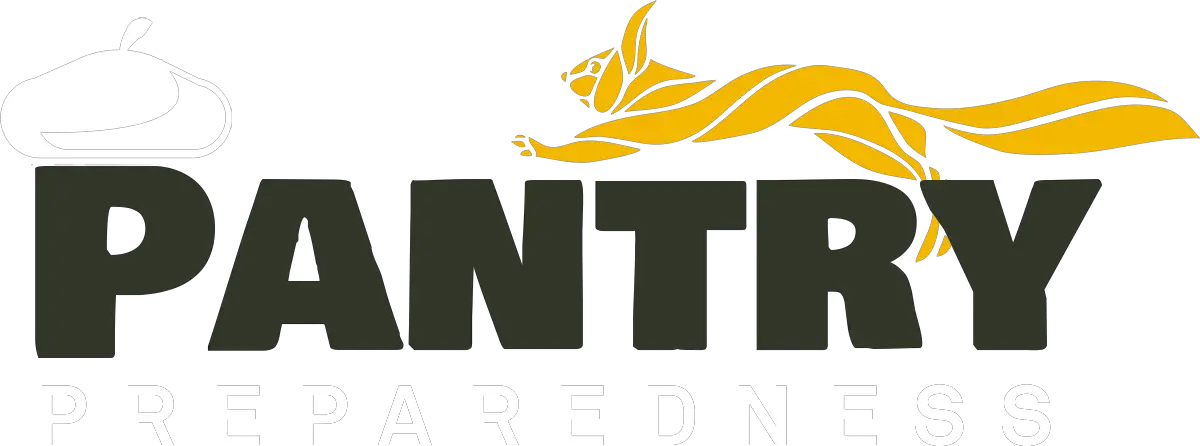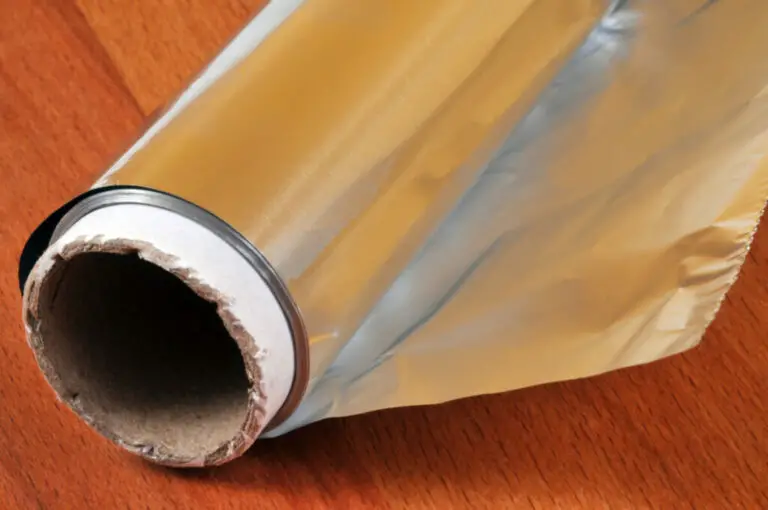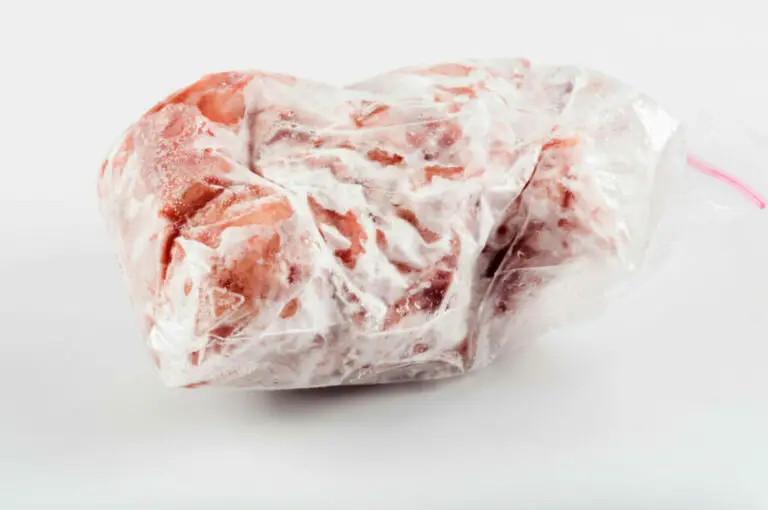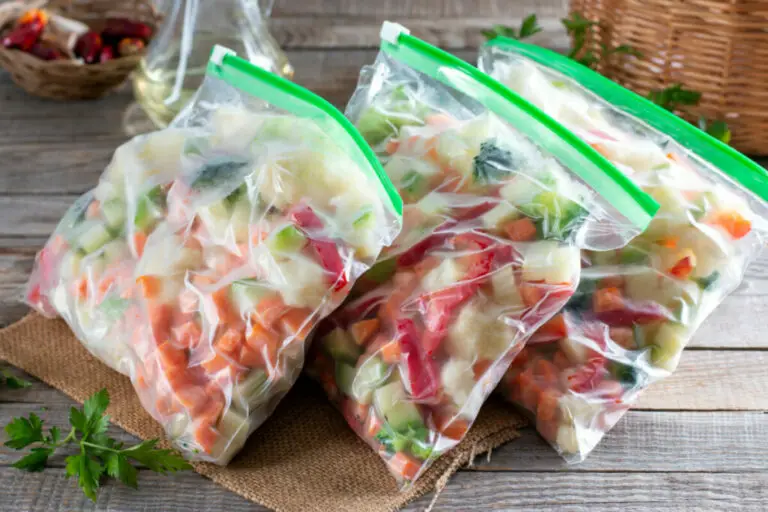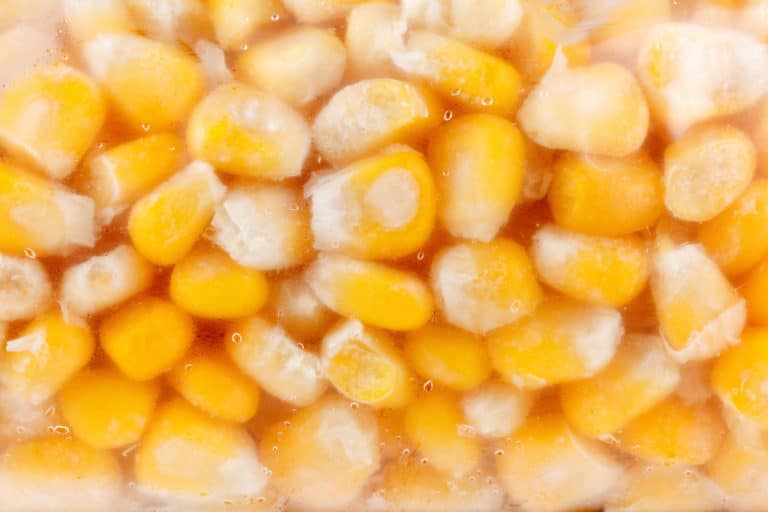There are many different places you can store food, including in the pantry, on the counter, in the fridge, or in the freezer. The freezer may be the best place to put a lot of your food storage, especially when it comes to perishable goods. Why is the freezer such a great food storage location? Keep reading to learn about 12 benefits of storing your food in the freezer.
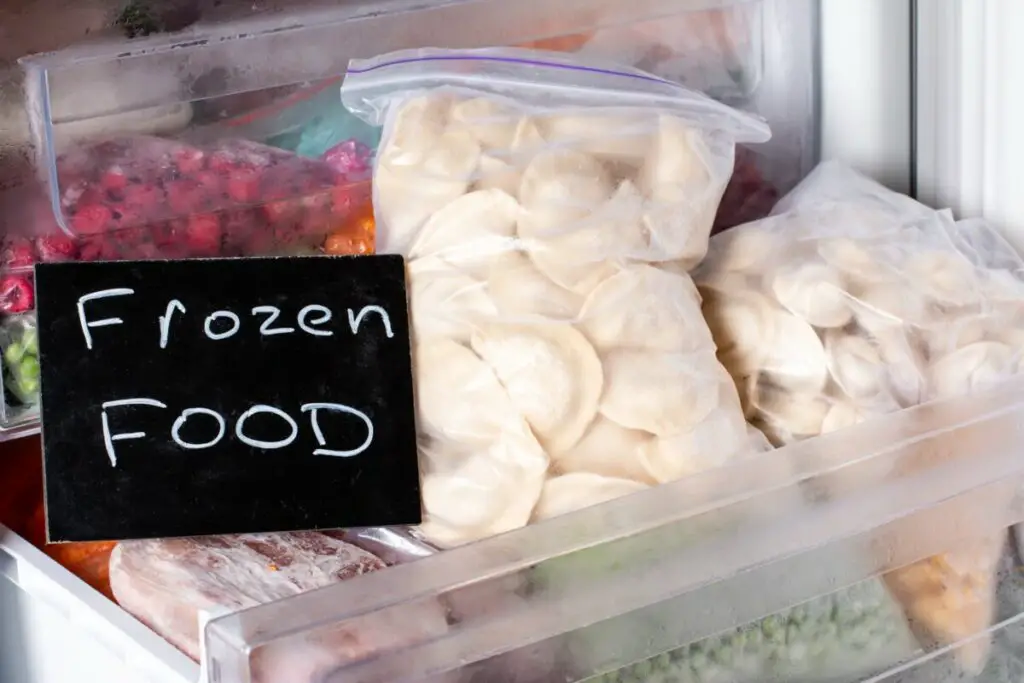
1. Saves Storage Space
If you put your food storage in the freezer, you free up space in your pantry and kitchen shelves. This is especially great if you have a small kitchen with limited storage or fridge space.
However, non-perishable foods shouldn’t be put into the freezer, even if they are part of your emergency food supply. If you put non-perishable food in the freezer, it could go bad, even if it is kept frozen. Canned food can also explode if put into the freezer because of the cold temperatures. Only store perishable foods in the freezer.
Also, keep in mind that many people don’t have enough space in their freezer to store leftover food and their regularly-used frozen food items. If you live in a house with a garage, get a separate freezer to put in the garage if you want to store food in the freezer but are running out of room in the freezer that is in your kitchen. My family loves our garage freezer, even though only a few people live in the house nowadays.
2. Minimizes Waste
It is easy to miscalculate when baking and cooking. Making too much food will often result in perfectly good food going to waste because there aren’t enough people to eat it. Over the course of a few months or even a week, this amount of wasted food can become rather concerning. It can also be expensive.
When you store food in the freezer, however, food will stay fresh longer. This means that you will have more time to eat it. This works well for many baked goods, meals, raw food, and produce. A lot of baking recipes create large amounts of food that are ideal for large groups of people or parties. If you aren’t able to finish a whole cake, for example, you can freeze a portion of it and then thaw it in the fridge a few weeks later when you are ready to eat it again.
3. Offers More Variety For Meals
There are a lot of delicious seasonal foods, which can be disappointing if you want to eat seasonal food when it isn’t in season. In some situations, you can’t even find certain foods while they are out of season, making them a hot commodity when they are available. This sometimes makes it hard to find seasonal foods even when they are in season.
One of the benefits of freezing food is that you can purchase the seasonal foods that you enjoy while they are available in stores and keep them safely stored in your freezer until you want to enjoy them. This means you can eat your favorite foods regardless of whether or not they are available in stores at the time.
4. Convenient & Saves Time
Everyone loves to save time. Freezing your food can help you to do just that. Many people want to eat healthily but have a hard time setting aside time to cook and prepare fresh, healthy foods. If you prepare a large batch of your favorite healthy meals, portion it into individual meal portions, and freeze these portions, your meals will be ready for you when you are ready to eat them. This makes it easy to eat healthily regularly. It also helps you save time, as you can prepare a week’s worth of meals within a few hours rather than spend 30 minutes to 1 hour preparing food every day.
5. No Preservatives Needed
Foods that are frozen don’t need to contain as many preservatives and additives because the low temperature will naturally preserve the food. This means that the quality and freshness of the products you freeze can be much better than that of foods that are not frozen.
Most companies that sell food have to put preservatives, which are largely composed of chemicals, in their products to extend the shelf life of said products. This is especially common with fruits and vegetables. Using the natural process of freezing to preserve foods will eliminate your reliance on these additives and preservatives in foods.
Most basic foods that are labeled with a best-by or use-by date can be frozen to extend their life past that date. You can place them in the freezer before or on the expiration date and they will be good for another few weeks to months depending on the product! For example, bread can be frozen and last for up to six months without going bad! Most frozen vegetables are good for about 8-12 months when frozen.
If you notice your produce is ripe and may go bad soon, you can put it in the freezer to literally freeze the fruit or vegetable in that state of ripeness. When you are ready to use the produce, you can thaw it on the counter or in the fridge and then enjoy perfectly ripe food. However, some produce may change in texture after it has been thawed.
6. Inactivates Microbes such as Bacteria and Molds
Freezing food has some safety benefits as well. For example, freezing food to zero degrees Fahrenheit will inactivate microbes that can cause bacteria and molds to form on the food. As a result, your food will last longer than if you kept it in the fridge or on the kitchen counter.
While on the shelf or in the refrigerator, these microbes are active and can quickly multiply on food to levels that can cause you to get sick.
7. May Help Save Food During an Emergency
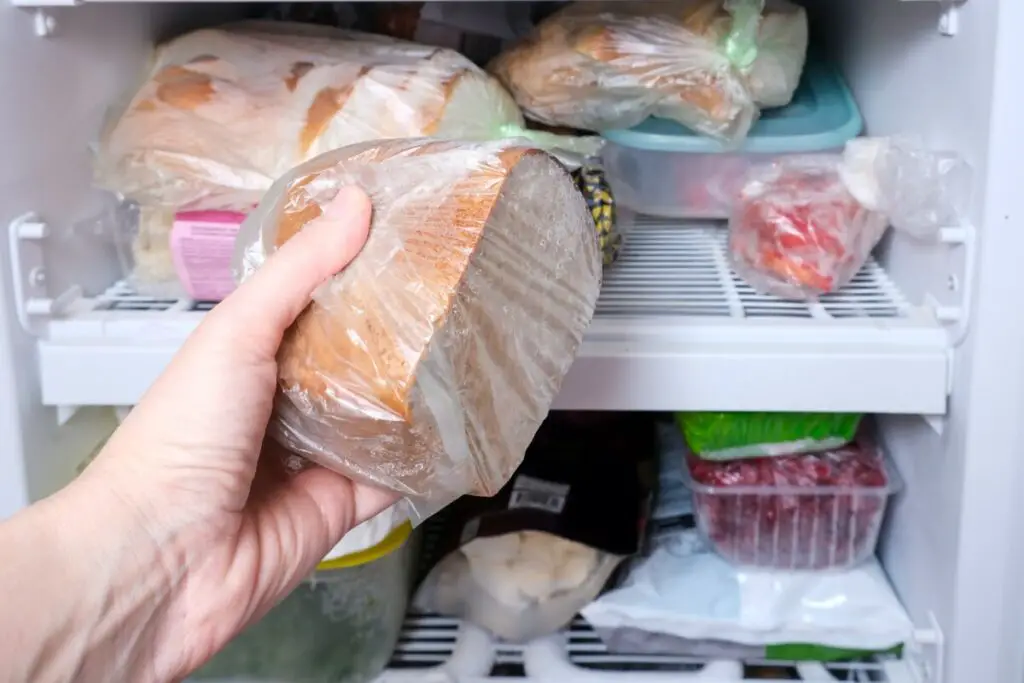
Natural disasters, storms, and other emergencies may cause a power outage where you would lose power to your fridge and freezer. Without the power, the food will begin to warm up. In this situation, the food that is stored in the fridge will spoil the fastest, but food in the freezer may stay at a safe temperature until the power comes back.
As a result, if you store food in the freezer and your power goes out, you may not have to throw away all of your food. You may just have to throw away the food in your fridge.
8. Can Create New Variations of the Food
There are several kinds of food that will taste differently and have a new twist, texture, or flavor after being frozen. In these cases, freezing the food will not only extend its shelf life but will create a whole new delicious version of the food for you to enjoy that you would have otherwise missed! If you store fruit in the freezer, you can use the frozen fruit to make smoothies, which you can’t make with non-frozen fruit.
Many people enjoy their favorite food even more as the frozen version. Freezing yogurt tubes, grapes, or candy bars add a whole new dimension. Many people would agree that the frozen version tastes better than at room temperature. You could also try frozen cookies, brownies, pie, or juice for a frozen treat. Experimenting with freezing food may help you discover a new favorite snack!
9. Helps With Portion Sizes
Many people struggle with knowing how large of a portion to serve themselves. Even when they do serve up a properly sized proportion, it is all too easy to get seconds or thirds. Another helping of food is always a temptation when it is readily available. In this way, freezing food eliminates some temptations.
For those that prepare their meals beforehand, the freezer can be a great place to store your food. When you are thawing and maybe heating these pre-prepared meals, it is more difficult to get another serving. You can still get another portion if you need to, but the convenience of simply scooping more food out of the pot is gone.
This is a great way to monitor the size of your portions and not exceed the recommended portion size. You can even note any need to increase or decrease your portion sizes and make these adjustments the next time that you prepare food.
10. Better Nutritional Content
While this doesn’t apply to every frozen food, it is often better to purchase frozen rather than produce. The bags of frozen fruits and vegetables that you can buy at the store are packaged during peak growing season. This means you can get the best crop year-round.
Fruits and vegetables that are harvested at the peak of the growing season have a higher concentration of their naturally occurring vitamins and minerals. Also, when fruits and vegetables are shipped, they lose some of their nutritional value. However, fruits and vegetables that will be sold frozen are often frozen near the field they were grown in, which means they are ripe and full of nutrients when you purchase them.
You can buy almost every type of fresh produce year-round, but making it available in stores takes a lot of work. Produce is either shipped from far away, grown in artificial conditions, or altered to withstand unnatural temperatures. When you buy frozen fruits and vegetables, they have been preserved in their optimal form.
11. Saves Money
Everyone has gone to the store and then accidentally purchased more food than they were able to eat that week. Oftentimes, this mistake may seem small, with only a couple of items being thrown away from lack of use. However, every time food goes bad before you can eat it, you essentially throw away money. When storing food in the freezer, it is much less likely that food will go bad before it has been eaten. This will save you money in the long run.
You can also save money by buying sale items in bulk. If meat or produce is on sale, you can buy much more than you could eat before it would go bad in the fridge and put the extra in the freezer instead. The next time you need that item, you can get it from the freezer instead of buying it at full price at the store.
Some foods may be cheaper to buy frozen rather than fresh. In the wintertime, many fruits and vegetables are difficult to grow fresh, but they are readily available frozen at relatively low prices. Fresh food is also often more expensive during the winter because of how hard it is to grow fresh produce.
12. Simplifies Feeding a Larger Group or Crowd

Freezing food can make hosting a party or gathering far easier. Anyone who is feeding a large group knows how overwhelming the task can become, especially when planning to serve a main dish, side dishes, and dessert. Even without multiple options for side dishes or the main course, the time and effort that goes into preparing a large amount of food can be daunting.
This is where freezing food for storage can be useful. You can easily begin cooking multiple days ahead of time, rather than cramming all of the preparation into a single day. For example, you can make a few dozen cookies and put them in the freezer until a few hours before the event! This will allow you to serve freshly-baked cookies with very little effort. This also works well with a lot of casserole-style dishes like lasagna or chicken pot pie.
It is also easy to cut up vegetables and freeze them beforehand to keep them fresh. Once thawed, these vegetables can then be put into a dish or served on their own! Freezing portions of the meal will make gatherings less stressful for you and your family members, which is especially helpful during the holidays.
Overall, there are many benefits to storing food in your freezer. You just need to take advantage of them.
